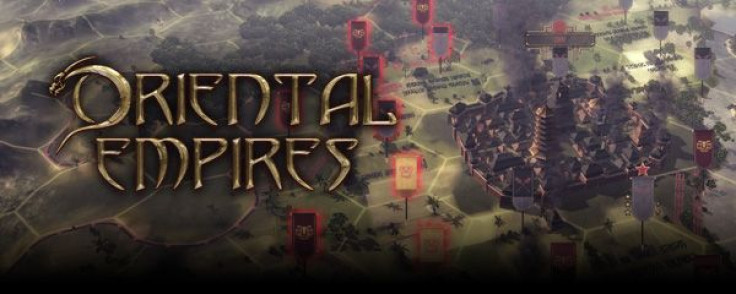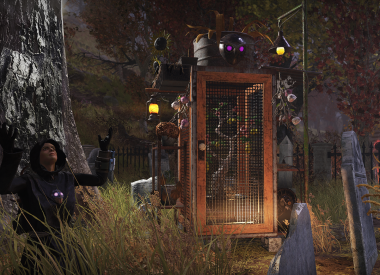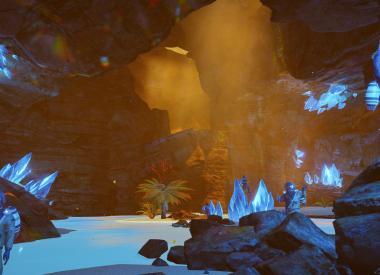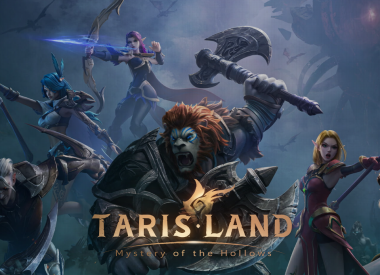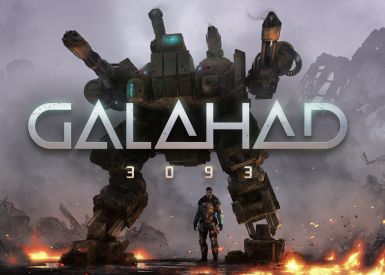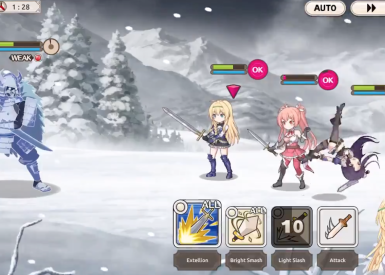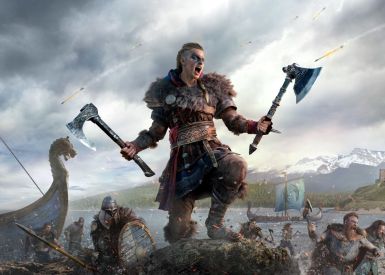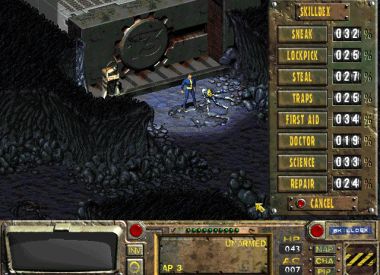China is a bit of a bugaboo in the U.S. Americans are increasingly aware of China’s presence as a global power in the 21st century, but largely remain ignorant of the rich history behind one of the world’s oldest and most advanced cultures. Iceberg Interactive’s new 4X strategy game, Oriental Empires , aims to educate as much as entertain by delivering a robust tactical experience centered around authentic Chinese history.
“Civilization games have a light historical background,” said Bob Smith, Project director for Oriental Empires . “Everything in our game is based on 3,000 years of Chinese history.”
The comparison to the Civilizations franchise is inevitable, but Smith believes Oriental Empires has a few stand-out features that make it a different experience. For one, the history itself is integrated into everything from building style to tech tree improvements to factions and nation states. Smith explained that people have automatic expectations for Chinese history that loom large in American minds but, in reality, were limited timelines.
“Everyone asks about Mongols,” he said. “They weren’t even a part of 90 percent of Chinese history but everyone expects them to be there.”
In fact, Smith explained, the Mongols aren’t even the most interesting military story in Chinese history and a long and varied string of rebellions and uprisings gave the team plenty of source material to draw from.
Beyond the attention to historical detail, Oriental Empires gameplay appears to be standard. Fans of the genre will find few surprises, but a lot of the bloat associated with 4X titles has been stripped away in favor of streamlined mechanics. For example, there are only specific tile improvements to be made on the map, not worker units to manage.
“In most games like this you eventually end up automating the workers anyway, so what’s the point?” said Smith.
Oriental Empires also tweaks some of the strategies Civ fans might lean on when it comes to world building. There is unit stacking in Oriental Empires, but it’s limited to eight units. There is also a neat military recruiting feature that limits the amounts and kinds of units you can create. For example, in many 4X games it’s easy to just set every settlement to producing elite military units over and over and over. By limiting the recruiting pool, and tying it to other in-game factors, players can’t just spam a super army of elite units.
Combat is formation-based and tactical. Players will arrange their troops according to different patterns and then engage with the enemy. Once combat starts it doesn’t resolve until the end of the turn, so there are no real-time squad movements. You won’t be able to suddenly change orders if a battle isn’t going your way. This, too, adheres to the sense of realism and historical presence the team is going for.
“A real general wouldn’t have been able to change everything in the middle of a battle,” Smith explained.
There are also diplomatic and economic conditions to consider as well. Players are able to form alliances and trade routes, as well as establish things like banks and stock markets. Smith explained that China came “very close to creating the modern world” and these concepts up and running as far back as the 1500s. Translating that into the game meant a tech tree with four branches, Power, Craft, Thought and Knowledge, that advance independently of each other. They are not siloed, though, and players may need to research certain Power techs before unlocking advancements in Craft or Knowledge.
Players can win through traditional military conquest, cultural influence or by convincing other nations to submit through diplomacy. Players can also set victory to occur after a set number of turns, with the winner decided by the number of points accrued across all three fields. How those points are awarded in each category wasn’t made clear in the 30-minute preview, but Smith said they are complex and based on a large number of different factors. In short, there’s no easy way to win.
“We want to avoid runaway empires,” said Smith.
Oriental Empires is shaping up to be a solid entry in the genre. Based on what was shown in the preview it’s clear that a sense of real history, being applied through streamlined 4X mechanics, will translate into a new but familiar experience for genre fans. Players intimidated by other, more complex 4X titles might enjoy the simpler play style of Oriental Empires . And hardcore players should consider checking it out, if only for the interactive history lesson.
Oriental Empires is slated for a Summer 2016 release on Steam. No pricing information has been confirmed, but Iceberg Interactive typically sells titles for around $35.

